German Star of India for director Sandeep Kumar.
Feature film award for 'Mehrunisa
STUTTGART - The socio-critical film 'Mehrunsia' by Sandeep Kumar with the wonderful actress Farrukh Jaffar in the title role was awarded the film prize 'German Star of India' (4,000 euros) in the feature film category by the 19th Indian Film Festival Stuttgart on Sunday. The trophy for the best short film, endowed with 1,000 euros, was awarded to 'Succulent' by Amrita Bagchi. The Documentary Film Award, endowed with 1,000 euros, went to 'Writing with Fire' by Rintu Thomas and Sushmit Ghosh. The 'Director's Vision Award', also endowed with 1,000 euros, went to 'Paka - River of Blood' by Nithin Lukose. The Audience Award, worth 1,000 euros went to the Short ‘Bad Egg’ by Mehak Jamal
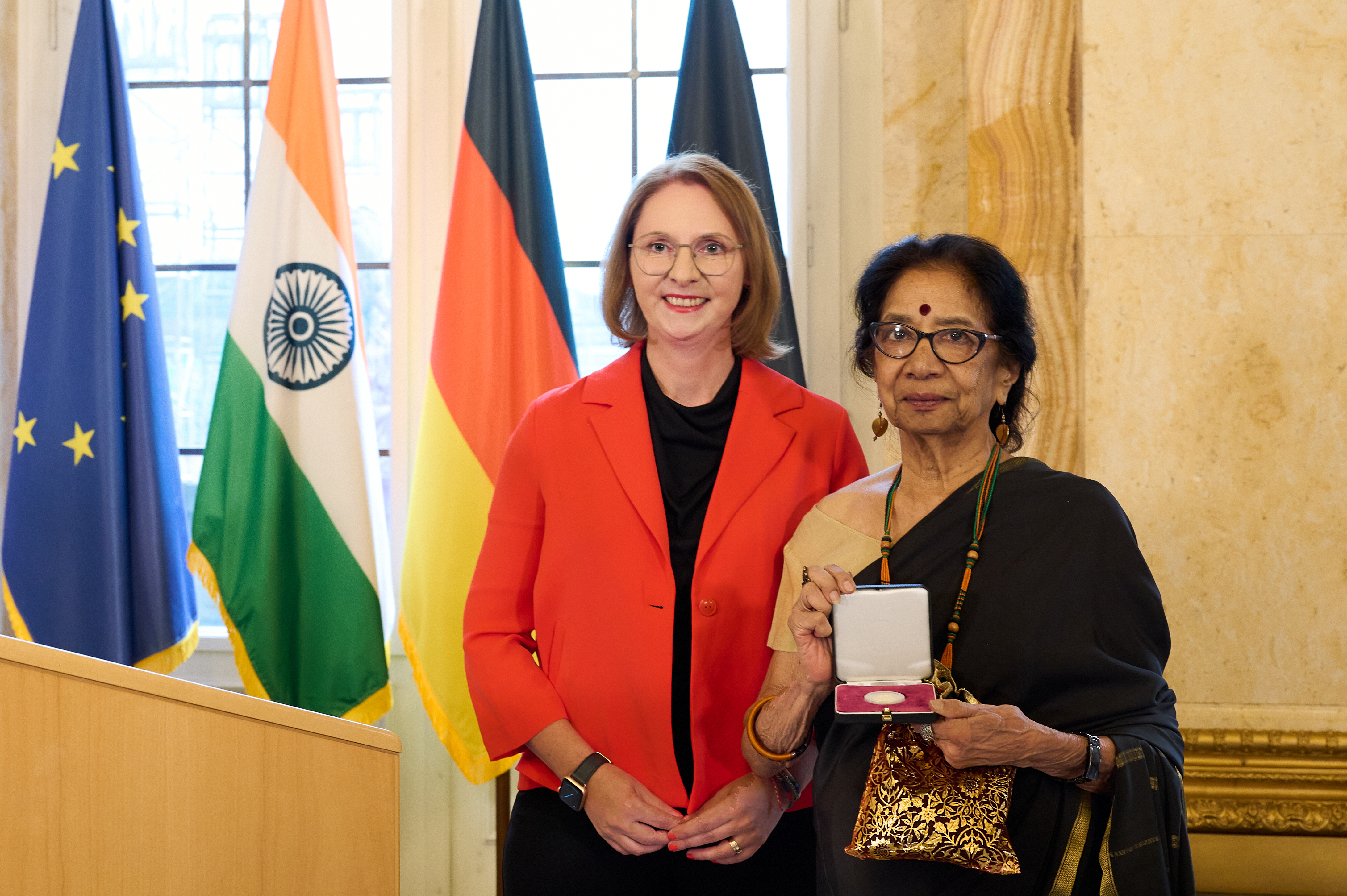
State Secretary Mrs. Sandra Boser and Uma da Cunha
Already at the start of the festival, long-time curator Uma da Cunha (89) from Mumbai was awarded the Staufer Medal in the Marble Hall of the New Palace in Stuttgart. State Secretary Sandra Boser presented the highest award of the state of Baden-Württemberg to an Indian woman for the first time. With its return to the cinema, the festival thrilled audiences with 30 current screen works and exciting film guests from India after two online editions due to the pandemic. Special highlights were the very well-attended School Day, which was supported with film festival funding from the Goethe-Institut in cooperation with the Foreign Office of the Federal Republic of Germany, and the family film 'Gandhi & Co.", an Indian rascal story whose dialogues were dubbed into German live in the cinema hall by Stuttgart actress Juliane Bacher. Honorary Consul Andreas Lapp from Stuttgart, the main sponsor of the film festival, and Consul General Mohit Yadav from Munich praised the Indian Film Festival Stuttgart as an important and vital cultural bridge between India and Stuttgart, the capital of BadenWürttemberg
Jury statement for winning feature film 'Mehrunsia’
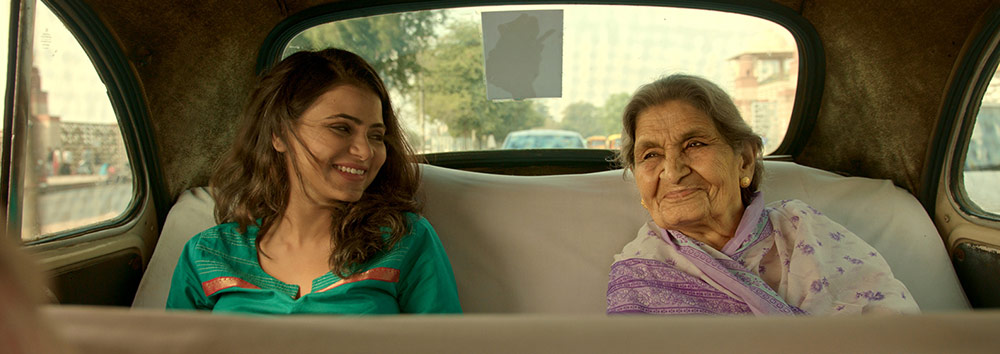
In the winning feature film 'Mehrunisa', an 80-year-old actress fights against patriarchy in society and the film industry. After the death of her husband, his widow Mehrunisa publicly burns the bed - "such an unheard-of event and such a haunting image that you have it in your head long after the film is over," the three-member jury, consisting of MFG employee Maximilian Hoehnle, director Anja Gurres and producer Louis Wick, found. This, they say, is the starting point for a beautiful grandmother granddaughter story "that questions hierarchies, celebrates self-determination and inspires hope beyond the cinema screen. By denouncing the revisionist plot of a historical film script, Mehrunisa and Aliya take aim at the film industry and ultimately turn the tide in favour of a historically accurate and gender-just narrative," the jury added.
The cast, acting and staging, he said, are sublime but modest and close to the characters without being judgmental. ‘Mehrunisa' candidly addresses personal and societal conflicts as deep as its protagonist's endearing wrinkles, wholeheartedly embracing them with pragmatism and dark-toned humour," the jury reasons.
Jury statement for Best Documentary
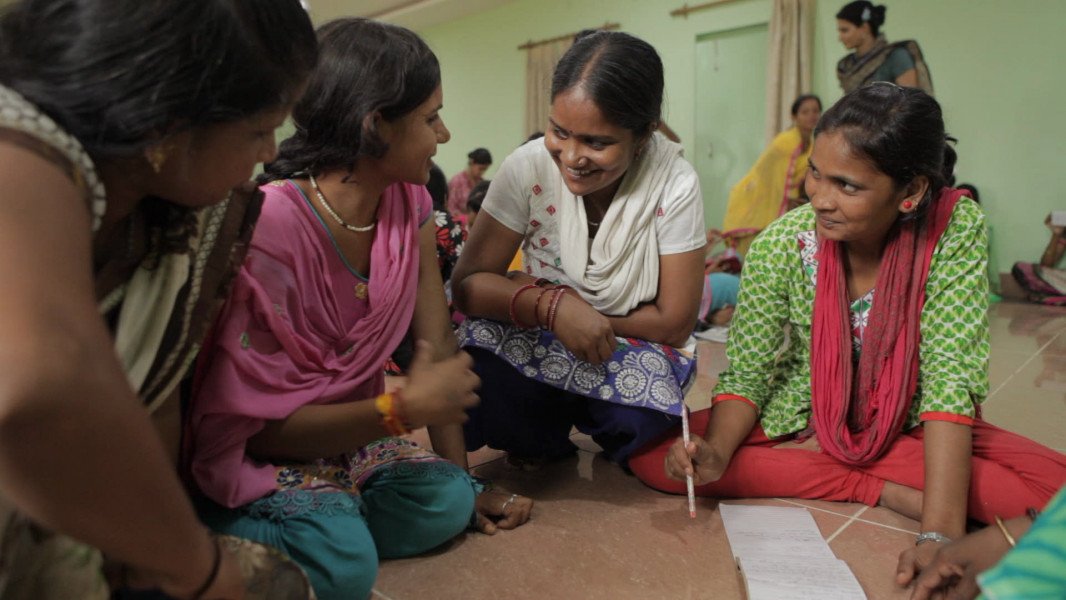
'Writing with Fire' by directors* Rintu Thomas and Sushmit Ghosh tells the story of the women journalists of Khabar Lahariya - the only all-female newspaper newsroom in India. The journalists report from a female perspective and how events, especially in rural areas, affect the lives of people of all castes. The directors "capture the struggle of the courageous women journalists against a patriarchal society and a male-dominated media world. In atmospherically dense scenes, the film accompanies the developments of the protagonists from the Dalit population group, for whom hardly any educational opportunities are provided in the Indian caste system. The observant camera also skilfully captures the digital transformation of the newsroom and shows a journalism that has grown out of the population to expose grievances and strengthen democracy and human rights," judged the jury, consisting of Sabine Willmann (film and theater director, media educator, film consultant), SWR editor and film writer Stephan Zierhut and documentary filmmaker Jannika Quaas. According to the jury, 'Writing with Fire' is an exciting contemporary document - change is possible with the necessary willpower and mutual support, even under difficult conditions.
Jury statement for the Best Short Film
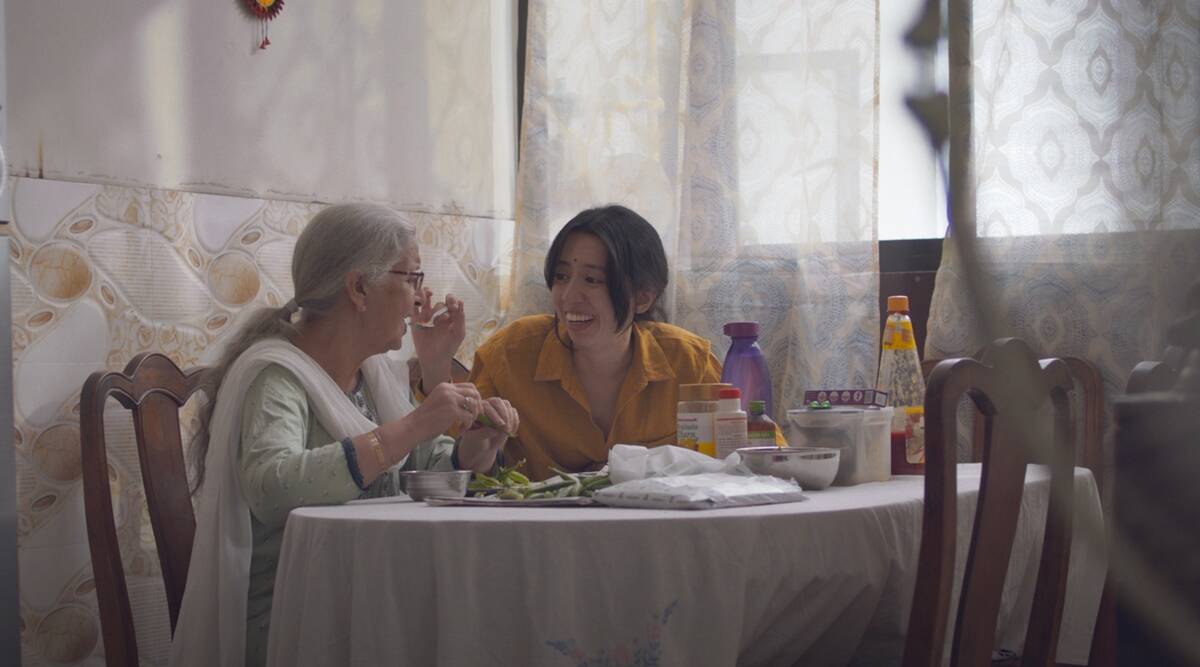
The three-member jury consisting of Indian filmmaker Ramesh Holbole, dramaturg Katharina Parpart and ZDF editor Alex Staib explained their decision as follows: "The short film 'Succulent' confronts us with universal questions about the core of our humanity: what makes us as individuals? Are we replaceable? Can closeness and affection be constructed and purchased like a service? In doing so, the film depicts a society of social distance - bringing to mind both the manifestations of a perverted hyper-capitalism and the consequences of the Corona pandemic.
In this often brutal world of forlornness and loneliness, 'Succulent' also observes comforting moments of mutual affection and at the same time their fragility - for example in the relationship of the main character to her elderly customer, whose granddaughter she embodies.
‘Succulent' is also convincing in terms of its craftsmanship, with clear aesthetics and a consistent visual language. Spectacular locations meet concise dialogues, intensive acting by the actors and an atmospherically dense sound carpet. At the same time, the film is clever enough to leave many things in hints and not to tell the stories of its characters.
‘Succulent' sketches a dystopian draft of society, a mixture of science fiction vision and social study. A film as evocative-fascinating as it is disturbing."
Director's Vision Award for 'Paka'
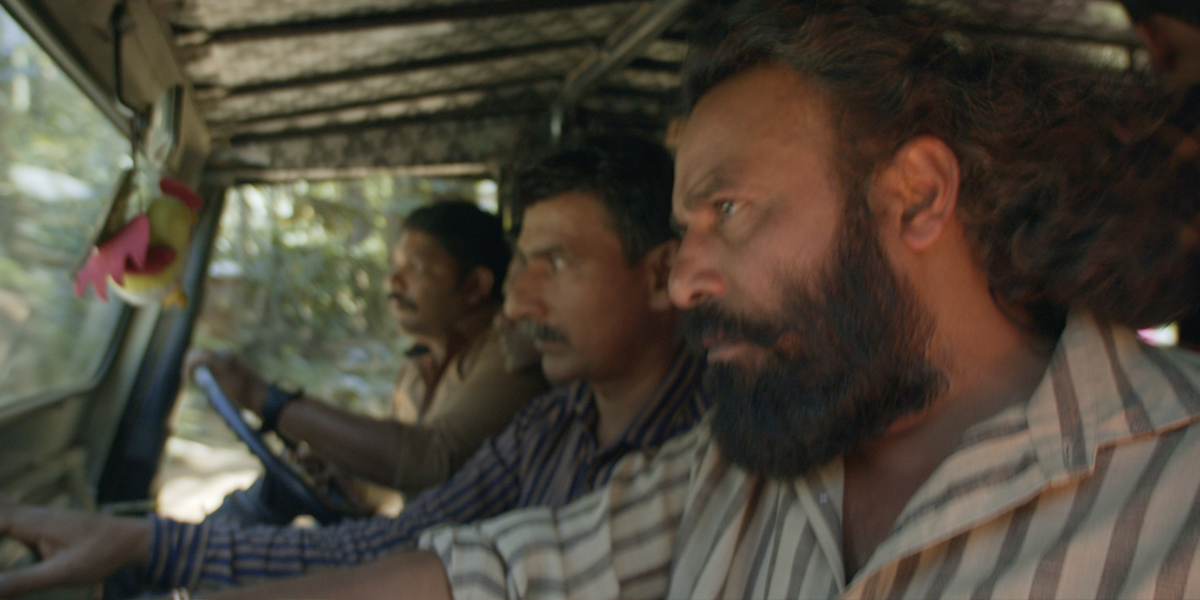
The Director's Vision Award, endowed with 1,000 euros, honors directors who demonstrate exceptional political or social commitment with their film contribution. The jury - festival director Oliver Mahn and the two curators Uma da Cunha and Therese Hayes - decided in favor of 'Paka - River of Blood' by Nithin Lukose.
Violence always creates violence, that is an old wisdom. ‘Paka – River of Blood’ shows us in the microcosm of a village how the spiral of violence develops, driven by hatred, jealousy, and envy. The plot, set in an Indian village with rival gangs, projects well onto the general and current world situation. The film reminds us that courageous people need to stand up and break the cycle of mistrust, violence, and aggression
We must share this world together. The best way to do this is with freedom and mutual respect. And for that, we honour Nithin Lukose’s film ‚ 'Paka – River of Blood’
This article is republished from https://indisches-filmfestival.de/en/home-2/